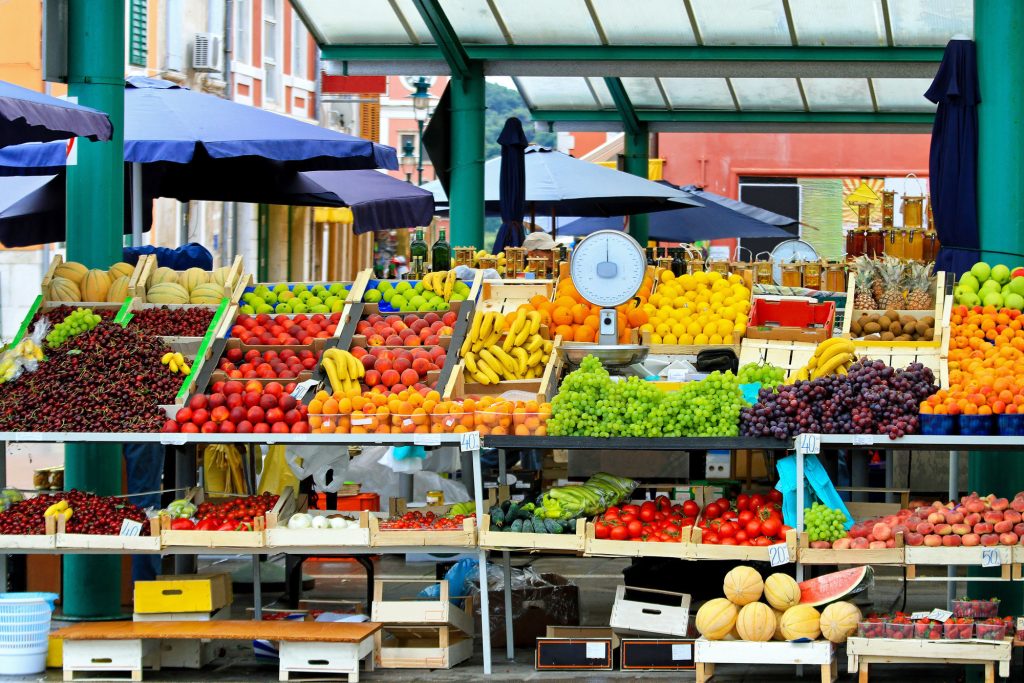Local markets, which provide a wide variety of goods, tastes, and experiences, have long been considered the beating heart of their communities. The dynamics of local marketplaces have changed as a result of the growth of Internet shopping, posing both new opportunities and difficulties for customers and enterprises. This article examines how local markets are changing in the age of internet shopping, looking at how they affect customer behaviour, spur economic expansion, and impact retail’s future.
The Importance of Regional Markets
Local markets have a long history that is based on custom, culture, and neighbourhood. These centres of trade, which might range from lively farmers’ markets to charming artisanal fairs, provide a wide selection of goods that are obtained straight from regional producers and artists. Local markets act as social hubs where neighbours congregate to socialise, share tales, and celebrate common customs, in addition to giving access to unique and fresh commodities.
The significance of local markets has been highlighted recently by the expansion of movements supporting small companies, sustainability, and ethical consumption. Local markets are becoming more and more popular among customers who are trying to support their local economies, lessen their influence on the environment, and build community resilience.

The Effects of Internet Buying
Online shopping has completely changed the retail industry by providing customers all over the world with previously unheard-of levels of ease, choice, and accessibility. From the convenience of their homes, consumers can explore an infinite selection of products, compare prices, and make purchases with just a few clicks. Online shopping has changed the way we shop, but there are worries about how quickly it may affect local companies and conventional brick-and-mortar establishments.
Local markets are still thriving because they provide a distinctive shopping experience that is unmatched by e-commerce behemoths like Amazon and Alibaba. The tactile experience of perusing booths, engaging with merchants, and trying out regional specialties continues to attract customers looking for genuineness and camaraderie.
The Meeting Point of Internet Shopping and Local Markets
Many firms are embracing the synergy between local markets and online shopping rather than seeing them as competing forces. To satisfy consumer demand for distinctive and artisanal goods, online platforms are including local products and artisans in their offerings as they become more aware of their worth.
Online platforms provide a significant means for local businesses to engage a wider audience and increase their consumer base outside their immediate geographic area. Local firms may boost sales, become more visible, and compete more successfully in the global market by utilizing the reach and scalability of Internet media.
Read More Online Retail Revolution: Digital Marketing for E-Commerce
The Development of Online Localized Shopping
The need for individualized experiences and support for local companies has led to a growing trend in localized online purchasing in recent years. Increasingly, online platforms are including features like geo-targeted promotions, curated collections, and virtual marketplaces that display goods from nearby merchants to help customers find and support local businesses.
This trend towards more localized internet shopping is a reflection of a larger shift in consumer behaviour towards community-centric consumption, in which people place a higher value on helping out small local companies and promoting local economic development. Online platforms may increase their consumer appeal and relevance by following this trend, which will also have a good social and economic impact locally.

FAQs
What function do local markets serve in the age of Internet shopping?
Despite the rise of online shopping, local markets still offer distinctive experiences and help out small businesses in the community.
In what ways do online purchasing platforms help local markets?
By making their products available to online customers, internet platforms assist local markets in expanding their customer base and boosting revenue.
Are local marketplaces still important in the e-commerce era?
Indeed, local markets are still relevant today because they provide genuine experiences, distinctive goods, and community support.
In what ways might shopping online enhance the pleasure of going to local markets?
Online shopping sites, with their greater product selection, ease of use, and accessibility, can improve the local market experience.
What impact will consumer behaviour have on how online and local markets develop in the future?
The development of local markets and internet shopping is influenced by consumer desires for authenticity, sustainability, and backing small companies.
In summary
In conclusion, there are opportunities and difficulties for businesses, customers, and communities as local marketplaces evolve in the era of online purchasing. Even though Internet shopping is incredibly convenient and offers a wide variety of options, local markets are still essential for maintaining culture, building relationships within the community, and helping small companies.
Businesses can develop comprehensive shopping experiences that meet the many demands and tastes of contemporary consumers by embracing the synergy between local marketplaces and Internet shopping. Local markets continue to be an important part of our communities, whether they are conducted online or offline because they provide a feeling of place, connection, and belonging that is unmatched in the digital sphere.










